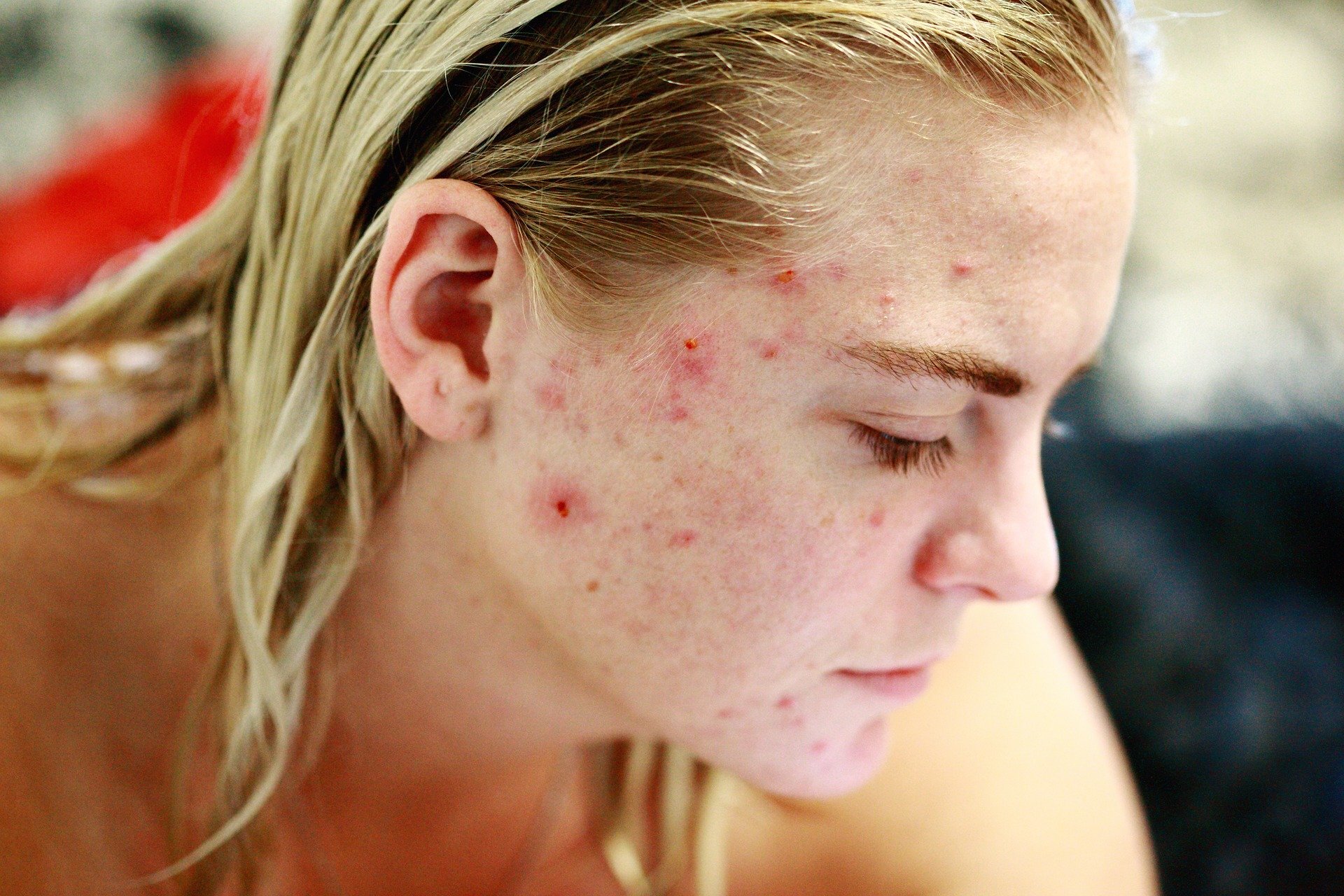Is Adult Acne Affecting Your Life? Here’s What You Can Do About It
Written by Alessa Jones
Chances are, you experienced a breakout every now and then back in high school. A fundamental part of one's adolescence, acne usually disappears when we become adults. But, what if you're not gifted with clear skin in the next chapter of your life, and acne outstays its welcome?
According to a study published in the Journal of Clinical, Cosmetic, and Investigational Dermatology, this is the reality for 12-22% of North American adult women between the ages of 26 and 44 years old, who suffer from adult acne. Although this may seem like a trivial issue, living with adult acne is a struggle that is beyond skin-deep.
How Can it Impact Your Life?
Image: Gurd Altmann
Just because you're an adult doesn't mean you've developed tougher skin when it comes to dealing with acne. The harrowing effects that acne has on one's self-esteem hold true for all ages. In fact, the British Journal of Dermatology shared a study that analyzed acne-diagnosed patients between the ages of 7 and 50. Findings revealed that people with acne have a 63% increased risk of developing depression.
In truth, worrying about your skin is far from superficial. After all, today's society places a huge emphasis on a person's appearance, as posting the perfect picture on social media or perfecting a skincare routine has become the norm. This pursuit of perfectionism can cause many to feel anxious about their appearance, as questions like, "Did they notice my pimple?" or "Do they think I'm ugly?" can loom heavy in your mind. This is why it's important to treat adult acne, not because you absolutely must have a clear face — but rather, to help you feel comfortable in your own skin.
What Causes Adult Acne?
Image: Sharon McCutcheon
For teenagers, getting acne is quite clear-cut, as puberty stimulates the production of the primary male sex hormone — yes, they're present in women, too! — called testosterone. Too much testosterone results in the appearance of acne. For adults, on the other hand, the process is a little more complex, as other factors come into play.
Hormonal Imbalance
While levels of testosterone rise during puberty, they can still fluctuate even when you're an adult. Indeed, as health and lifestyle blogger Amylou McBride has previously shared with us, hormonal imbalances occur when hormones that are in conjunction with each other, such as testosterone, estrogen, and cortisol, don't cooperate.
This imbalance causes the skin’s sebaceous glands to produce greater amounts of oil, which in turn leads to the development of acne. Not to mention, TIME Magazine notes that excessive stress heightens the production of acne-causing hormones.
Improper Diet
They say you are what you eat — and there is indeed a connection between your diet and acne. A diet high in refined sugar, dairy products, and fried food is the biggest culprit behind inflamed acne. Moreover, certain food sensitivities can also cause breakouts.
The Wrong Beauty Products
No matter how many beauty products you have in your skincare arsenal or how diligently you follow the double-cleansing method, if you're using beauty products that are oil-based then your face becomes a hotbed for acne. That's because oil traps bacteria inside your skin.
How Can it Be Treated?
Image: Couleur
Fortunately, there are many effective methods to help diminish the presence of adult acne so that it won't hold you back in life. For Dr. Robin Berzin, CEO of Parsley Health, it’s important to look at the root cause of your adult acne instead of focusing on covering up the problem. Though her adult acne was caused by food sensitivities she developed in adulthood, different people will likely have different causes of skin problems, which they need to address accordingly.
For instance, those with hormone problems can help balance them naturally by getting adequate sleep, exercising regularly, and keeping stress at bay. Be sure to cut back on sugar, and incorporate food that your skin will love, such as salmon, avocado, and all sorts of berries. Also, swap any oil-based beauty products for water-based skincare goodies, and Bustle recommends antibacterial shampoos to prevent clogged pores on your scalp, too.
Ultimately, when it comes to treating adult acne, the aim is not to attain perfect skin. Instead, you should see your treatment process as an opportunity to truly practice self-care so you can worry about your appearance less, and enjoy the beauty of life more.
Alessa Jones is a human resources professional with a passion for helping others build healthy habits that contribute to work-life balance and overall wellness. When she's not working, Alessa enjoys running and spending time with her two dogs.
Feature image: Alexandra Gorn



